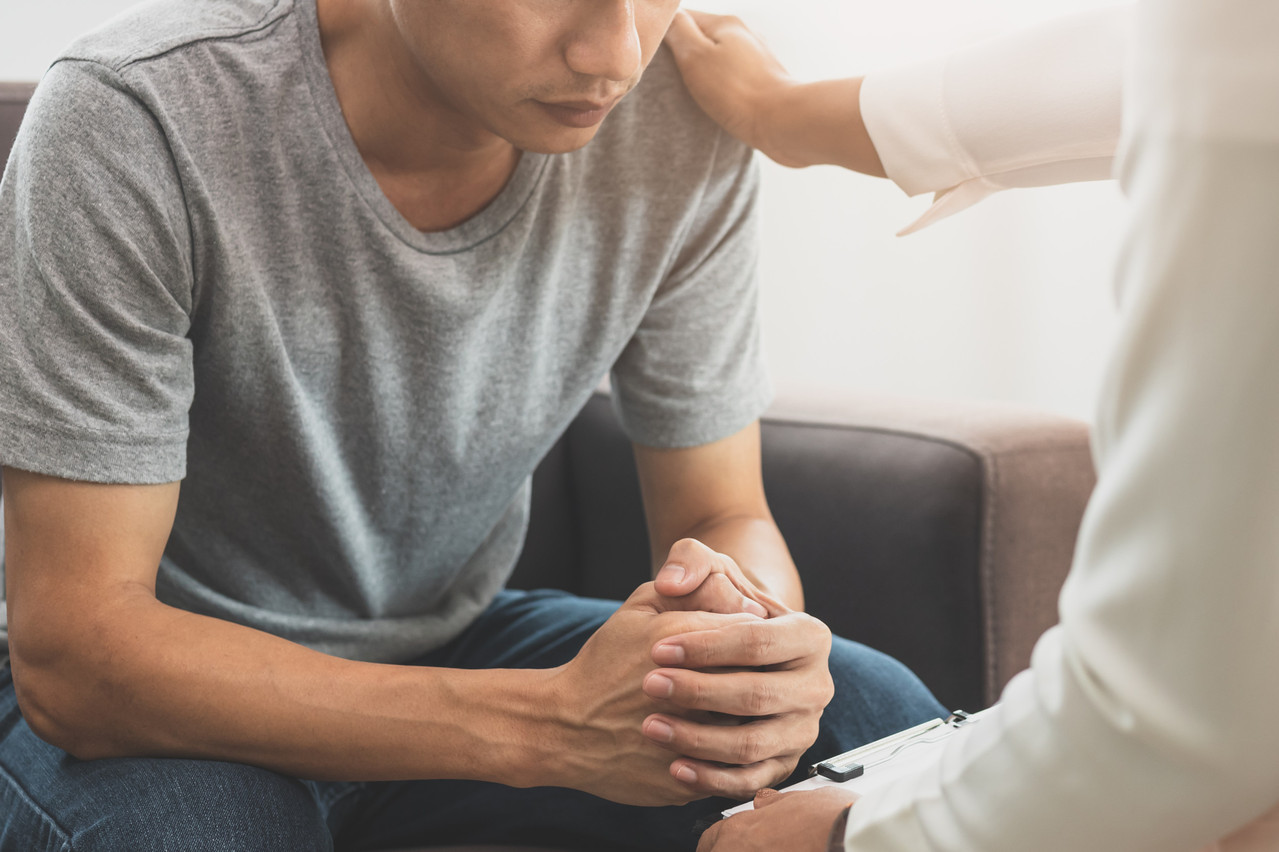The fight for equality between genders has seen a lot of progress thanks to feminist works in the past decades, but a lot remains to be done, said Francis Spautz. The trained psychologist leads the service, which provides help, support, and information to men in situations of acute distress. This comes in the shape of consultations, where “anyone who identifies as a man and is in need can come.”
“The men that come here are really in an acute emergency situation: they are fighting at home, have divorce threats looming over their head, or are victims of bullying in the workplace.
Indeed, while women and those who don’t conform to the binary system have been able to discover non-conforming models of being, men might not know about alternative, healthy modes of exploring their potential, Carneiro explained.
About 200 men who struggle with their emotions visit the state-subsidised organisation every year: some visit just once, others visit a few times, and some return every couple of years for a top-up.
“The men that come here are really in an acute emergency situation: they are fighting at home, have divorce threats looming over their head, or are victims of bullying in the workplace. Or they are socio-economically vulnerable and feel vulnerable in their context,” explained the service leader.
Hurdles on the way to equality
One of the issues that InfoMann meets in its work is that men often wait too long before acknowledging and accepting that they need help. But when they do get in touch with InfoMann--sometimes on the behest of a former client--they learn to express their needs and emotions, “clearly, calmly, with respect,” as Spautz put it.
Far is thus the idea that the organisation wants to put the well-being of men above that of women. “Men shouldn’t fight against female emancipation,” said Spautz, “they should work towards their own emancipation from traditional ideas of masculinity, like ‘bite your tongue, be strong etc.’”
Men shouldn’t fight against female emancipation, they should work towards their own emancipation from traditional ideas of masculinity.”
One of the organisation’s missions is therefore to show that disagreeing with someone and defending one’s position is possible, but that it’s not about belittling the other or leaning into anger. The other is to help men break free from preconceived ideas of who they should be.
The fact that different socio-economic and cultural backgrounds have different types of expectations for men means that there is not a single way of breaking free from ideologies.
The psychologists and pedagogues at InfoMann therefore approach this by providing tools: “it’s not about supporting men against women, it’s about their own attitudes. We work with them to recognise their own potential that they can explore in a constructive, collective, creative manner and without violence.”
Preventing fixed ideas from forming
Other than through consultations, InfoMann takes action by tackling the topic with young men--through educational workshops and by informing teaching staff and educators.
Here the approach is more pedagogical and playful, but still addresses topics like violence--against both men and women--as well as understanding media content. With youths, InfoMann focuses on helping them identify and understand their own and other people’s boundaries, explains Carneiro, who creates this educational content.
But just relying on younger generations to undertake change isn’t enough, said Spautz: “there is still a lot of margin to improve things. I don’t know if it’s enough to just bet on the young generations and expect genders to be equal within the next couple of generations.”
“There isn’t just one model of what a man should be,” he said. While InfoMann currently focuses on helping men in acute situations, it says it would be up for creating workshops for the business environment too. In the meantime, the team of seven is looking into opening two branches--one in the north and one in the south of Luxembourg--to support its Bonnevoie headquarters.
Men who feel like they need help can contact the association in its .
